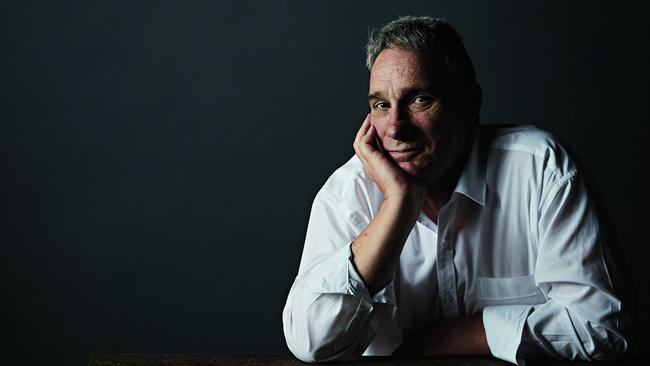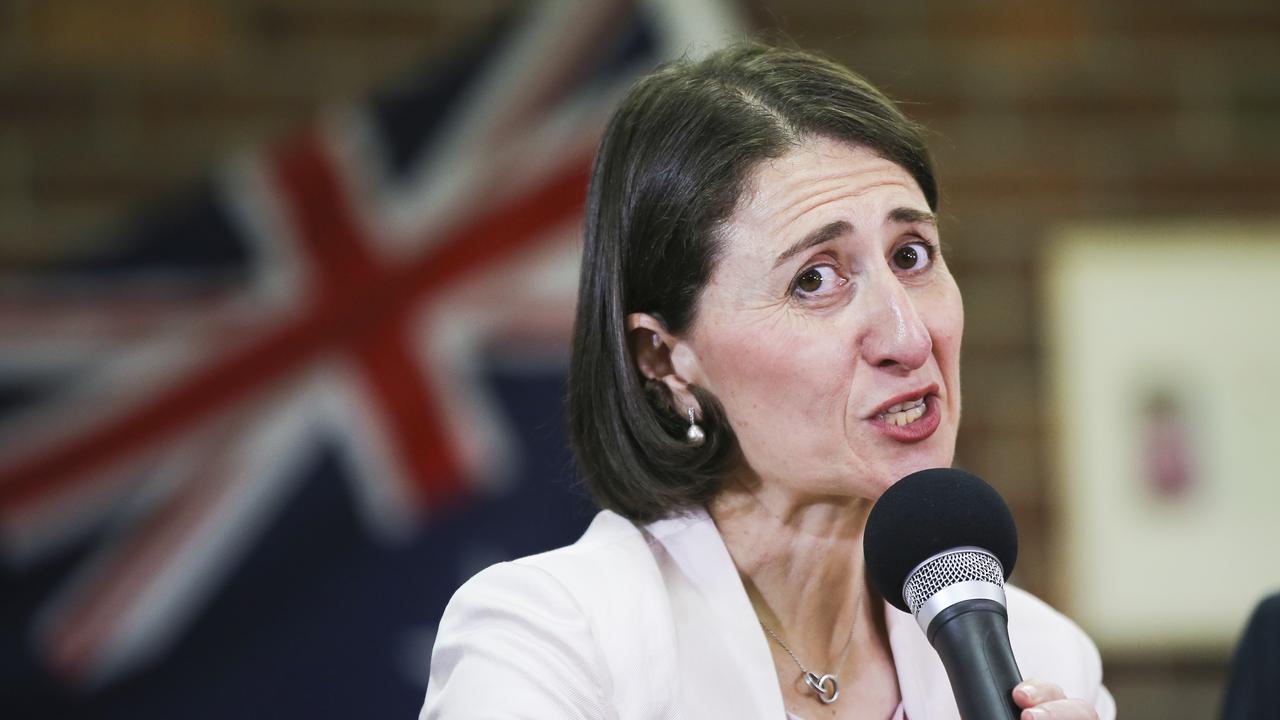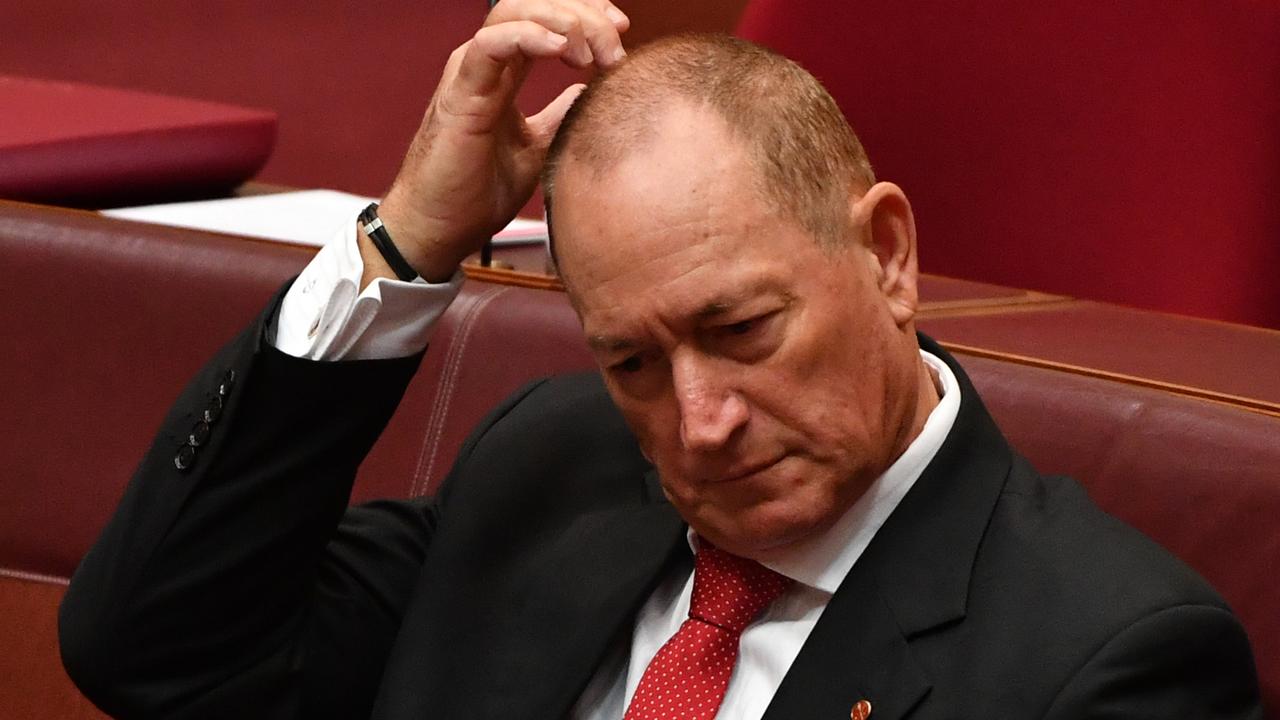
I guess everyone has days like this from time to time. Utterly perfect days, when everything falls into place, where expectation meets denouement, and everyone involved walks away a winner. Clearly, I am not talking about politics in this country. It is something a lot more important.
As readers of The Australian will know, I was diagnosed with bladder cancer in 2016 and after a series of cowardly attempts at avoiding surgery, I was left with no alternative. The knife beckoned.
In layman’s terms, my bladder, prostate gland and a foot or two of urethra were hacked out and casually hurled into a cytotoxic bin before being incinerated at 1500 degrees centigrade. Wafer-thin slices of my pelvic lymph nodes were sent off for pathology to determine if the cancer had or might spread to what remained of me.
The old bladder has been replaced with a brand, spanking new bladder which is not really a bladder at all. Rather, it is a piece of bowel that is suffering a deep existential crisis but if everything went swimmingly, the new kid on the renal block would develop a rock-solid five schooner capacity.
In the bland words of my medical report, the word swimmingly made no appearance. My recovery was compromised by hypotension (low blood pressure), hypothyroidism (brought on by failed earlier attempts at immunotherapy) and one or two problems with the surgical wound that had to be corrected with another bout of surgery.
I aspirated into my lungs during the first surgery, which led to a bout of pneumonia. Post-surgery, the nurses could no longer find a vein that would pump nutrients and antibiotics into my body, so a PICC (peripherally inserted central catheter) line was installed by angioplasty.
In the early morning the day after the major surgery, I roused from a gentle opioid slumber to find at least two dozen nurses and doctors standing around me with brows furrowed, looking deeply concerned. It is the way of near-death experiences that the near-expiree is always the last to know.
My blood pressure had plummeted. I drifted in and out of consciousness for the remainder of the morning while they pumped my body with 17 litres of fluid. It worked, although the following day I turned into the Michelin Man. My hands looked like I was sporting a pair of flesh-coloured wicketkeeping gloves and, peering underneath the blankets, my scrotum had become elephantine in both structure and size.
I underwent what is politely called nasogastric intubation. Of the many indignities and outrages my body was subject to, this was by far the most unpleasant. My bowels had temporarily packed it in and the tube would enable the nurses to pump out the awful green, bilious contents that had backed up into my stomach. I was conscious throughout as what felt like seven feet of garden hose was thrust up my left nostril. The doctor urged me to swallow and keep swallowing while the tube went past my throat and into my stomach.
At the time, the thought occurred that death would have been preferable, but once the tube was in place, there was no discomfort. I merely felt like a horse with a bad dose of colic.
Those undergoing any form of renal surgery will awake to find themselves attached to various tubes, bags and drains. Often a patient might have one or perhaps two. In my case it was four.
In the two weeks post-surgery, this led to a baffling assortment of bendy hoses leading to drains attached to my hospital bed. At the beginning of their shifts, the nurses would examine all of these and ensure they understood where each tube led. They would then carefully record how much had come out. It was only a matter of time before the tubes looked like the tangle of phone chargers and electrical cords that run out of the power boards behind the telly in most suburban homes. If I wanted to go for a walk around the ward it required the kind of logistics planning normally associated with a polar expedition.
I’m sure endocrinologists would not want me to make light of hypothyroidism, but it led to some amusing encounters and generally lifted my popularity in the ward from just another boring patient to somewhere between multimedia celebrity and sideshow freak.
Within a day or so of surgery, the first of the unscheduled visitors started arriving, pulling back the curtains theatrically as they might when viewing the Bearded Lady or Lobster Boy at P.T. Barnum’s.
They were second-year medical students. They showed little or no curiosity about the tubes and drains hanging out of me, but my neck was of particular interest. It transpires the endocrine system and how and why it goes awry forms a major part of the second-year medical syllabus. And there I was, effectively a rare, captive example of endocrinal dysfunction, available for poking and prodding at will. Roll up, roll up.
By my third week in hospital I had received 40 or so medical students all prodding about my neck and asking a bunch of questions.
There was nothing quite like these visits for kicking in the Joseph Merrick syndrome and I wondered if, after they got home, some of the students would start off the dinner table conversation with a comment like: “You should have seen the misshapen bloke we clocked today.”
I was nil-by-mouth for nine days. I dropped 20 kilos. The expected stay of 10 days became 23.
These and other sundry adventures took place in the surgical high dependency unit at Sydney’s Westmead Hospital - one step down in seriousness from intensive care. It’s an odd sort of ward nomenclature and I suspect health bureaucrats were briefly infiltrated by bean-counters from corrective services when they came up with it. The nurses were wonderfully attentive and endlessly patient; the docs coolly efficient.
For all the fun I had at Westmead by the end of May it was time go. As I gingerly left hospital (with a couple of tubes still attached to me), I still did not know if all of this had been for bugger all. I’d asked the doctors on numerous occasions and got equivocal answers. In fairness, they are urologists and were fixated on the success of the installation of the neo-bladder.
I found out on that glorious Thursday last week. Lymph nodes negative. The only cancer they found were on the bits of me that had already been cut out. It is not quite remission but I am cancer-free. Even that little confused bladder of mine has begun pulling its weight and ahead of schedule.
This is all wonderful, of course - but as happy as I am, I’m struggling to comprehend it.
You see, over the past three years, while others would plan overseas holidays, retirements in sunny climes or the pursuit of new adventures and opportunities, I would lay awake in bed at night planning my funeral. That’s how cancer works. It is a constant reminder of one’s own mortality, like a grim shadow, a cartoon cloud that sits above pelting rain and lightning bolts down while all else around is blue skies and sunshine.
I got so used to it that I’m not quite sure what to do now - but I’ll figure something out.




To join the conversation, please log in. Don't have an account? Register
Join the conversation, you are commenting as Logout